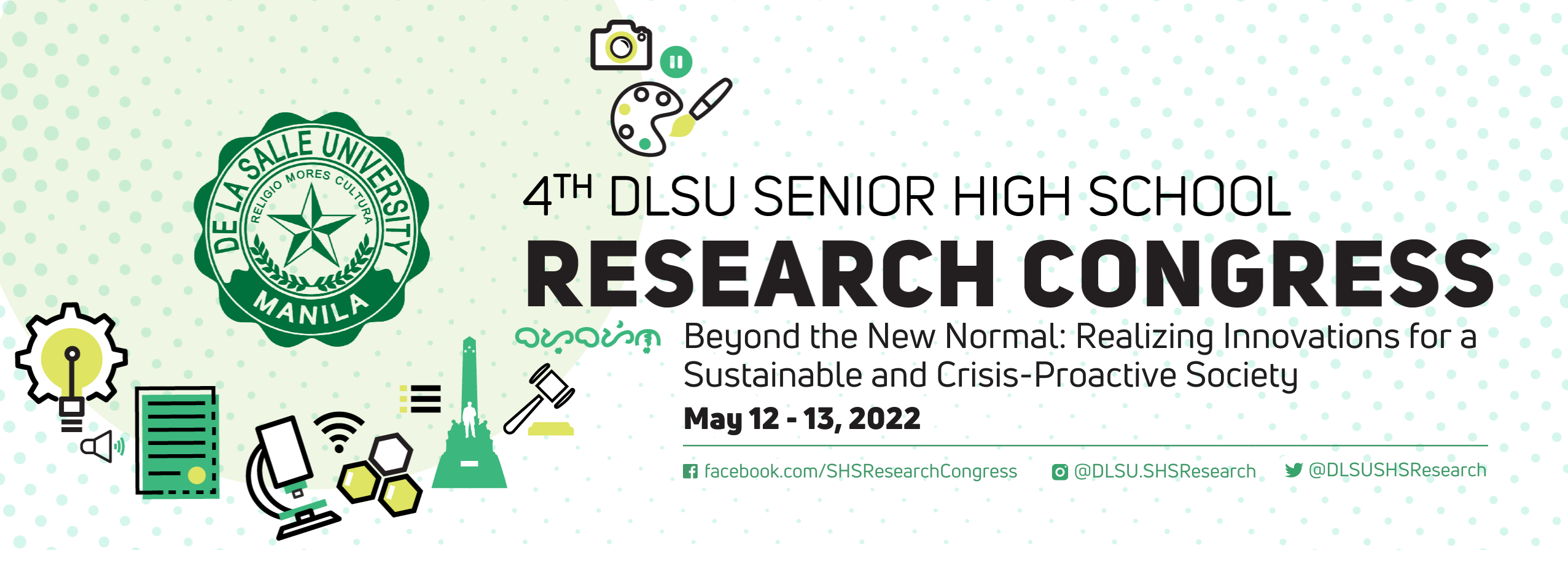Document Types
Paper Presentation
Research Theme (for Paper Presentation and Poster Presentation submissions only)
Sustainability, Environment, and Energy (SEE)
Research Advisor (Last Name, First Name, Middle Initial)
Dennis A. Dolojan
Start Date
13-5-2022 10:30 AM
End Date
13-5-2022 12:00 PM
Abstract/Executive Summary
The food industry is known to be one of the significant contributors to greenhouse gases. Beef production is one of the largest contributors to methane released into the atmosphere. This study determined the students’ volume of beef intake and the methane produced associated with their consumption. This study utilized quantitative analysis by producing a survey to obtain primary data from De La Salle Integrated School - Manila STEM students. The researchers created a methane calculator that had the ability to compute the methane levels of a diet. The results show that a student’s consumption behavior relating to beef results in the patronization of 38.87kg of methane yearly. The statistical analyses resulted in a significant difference in the mean beef consumption by grade level but showed contradictory results for the analysis by age groups. The mean beef consumption of Grade 11 students resulted in an average of 959.81g with a methane contribution of 59.80g, while Grade 12 students consume 705.39g of beef with 43.95g of methane. As for the students aged 15 to 19, their consumption resulted in an average of 1100.00g, 982.20g, 824.81g, 840.59g, and 1530.00g of beef, with a methane contribution of 685.30g, 722.88g, 779.55g, 689.61g, and 953.19g respectively. Between the two statistical analyses, the treatment by age group is considered better as the data was classified in specific age groups, unlike the other which involved a variety of ages per grade level.
Keywords
methane, beef consumption, methane measurement, greenhouse gas emissions, environment
Methane Contribution Associated with the Patronization of Beef Consumption by DLSU-IS-Manila STEM Students
The food industry is known to be one of the significant contributors to greenhouse gases. Beef production is one of the largest contributors to methane released into the atmosphere. This study determined the students’ volume of beef intake and the methane produced associated with their consumption. This study utilized quantitative analysis by producing a survey to obtain primary data from De La Salle Integrated School - Manila STEM students. The researchers created a methane calculator that had the ability to compute the methane levels of a diet. The results show that a student’s consumption behavior relating to beef results in the patronization of 38.87kg of methane yearly. The statistical analyses resulted in a significant difference in the mean beef consumption by grade level but showed contradictory results for the analysis by age groups. The mean beef consumption of Grade 11 students resulted in an average of 959.81g with a methane contribution of 59.80g, while Grade 12 students consume 705.39g of beef with 43.95g of methane. As for the students aged 15 to 19, their consumption resulted in an average of 1100.00g, 982.20g, 824.81g, 840.59g, and 1530.00g of beef, with a methane contribution of 685.30g, 722.88g, 779.55g, 689.61g, and 953.19g respectively. Between the two statistical analyses, the treatment by age group is considered better as the data was classified in specific age groups, unlike the other which involved a variety of ages per grade level.


